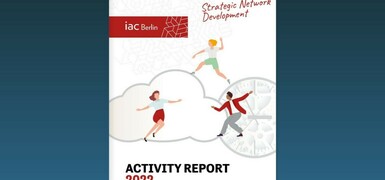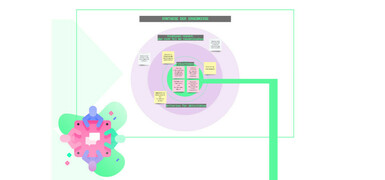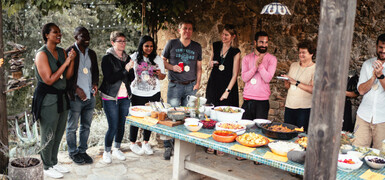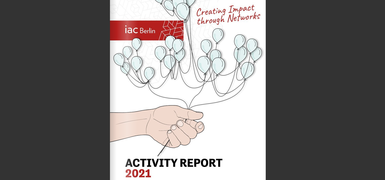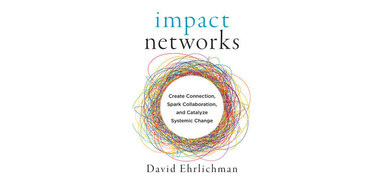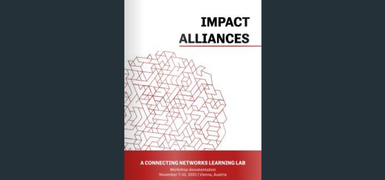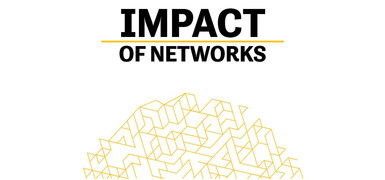
Collective Impact needs a new understanding of collaboration and funding
An interview with Winfried Kneip
To strengthen democratic culture on a systemic level, multipliers from different areas of society must work together strategically. This is one of the basic assumptions of the ANSTOSS DEMOKRATIE initiative, which has developed a corresponding network for the German-speaking region over a two- year incubation phase. Winfried Kneip, board member of the European Forum Alpbach and co-founder of the initiative describes how closely strategic network development is related to changing how we understand funding and achieving a collective impact.
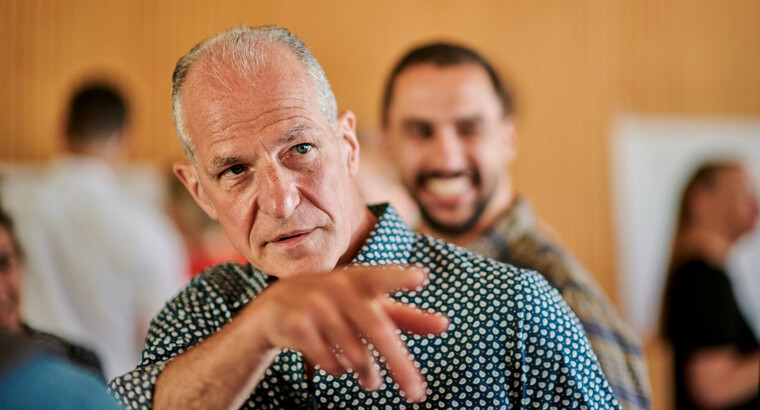
During your career in the foundation sector, you have had considerable experience with networking and addressed many issues close to your heart. What do you think about current networking approaches by foundations?
The dynamics and impact of networks often emerge organically and do not necessarily obey the logic of foundation projects. Managing networks can therefore pose a challenge to foundations. Time and time again, attempts are made to manage networks internally, which often results in standard procedures such as annual alumni meetings. Established foundations often lack the structure and experience to build effective, dynamic networks that offer value to all participants.
The discourse on innovative networks and their strategic development is becoming increasingly lively and inspired. Why then are good, practical examples still so hard to find?
It’s hard to develop innovative networks using pre-planned approaches. Many see networks as a pivotal approach to finding innovative answers to current questions. I often thought about this in the context of ANSTOSS DEMOKRATIE. We wanted to use our network to understand what support initiatives on the ground needed to help strengthen democracy. Ultimately, however, these were individual organizations, which acted locally and, for the most part, didn’t communicate with each other. Bringing these organizations together to form a real network requires both a great deal of expertise in network building and enough time to allow trust to develop.
If developed and supported in this way, could networks be the key to answering the great questions of our time?
Yes, if they are created with a different attitude. A project of mine is to combine the idea of "Collective Impact" with "Humble Fundings". From the very start, funders and recipients should be considered on equal footing and learn together. With projects in dynamic fields, it’s impossible to define at the outset what the outcomes will eventually be.
When facing complex problems, we can often only plan a few steps in advance. To dare to initiate a joint process based on trust; to develop a deep understanding of Collective Impact; to promote a field together with others; to listen to what the field recommends—that would be an appropriate way to address current issues.
You're thinking strategic network building through a Collective Impact lens, aiming to prepare for a future impact rather than achieve it immediately?
Exactly.
From the very beginning, transsectorality has been an important aspect of ANSTOSS DEMOKRATIE. How important is transsectorality in strategic network development and achieving Collective Impact?
Transsectorality is often desired without first defining what it means. People talk to each other across sectors and consider this to be transsectoral. In reality, the whole point of transsectorality is to reconcile commonalities, understand differences and act in a coordinated manner that protects the interests of all participants—not just the lowest common denominator. When exploring possible collaborative themes—such as democracy in the case of ANSTOSS DEMOKRATIE—with this goal in mind, transsectorality is no longer a prerequisite but a logical consequence.
After two years of incubating ANSTOSS DEMOKRATIE, were there any developments that particularly surprised you?
What surprised me most was how stuck many initiatives are in their understanding of projects. Perhaps we didn't always communicate this clearly enough, but the systemic approach of ANSTOSS DEMOKRATIE was hardly recognized by many at first. The field is conditioned to project work, and many struggled to think outside of this paradigm. Isolated projects may change something for a few people on the ground, but ultimately won’t change the system. Systemic change requires learning by both the sponsors and the initiatives.

Is there anything you learned about strategic network approaches at ANSTOSS DEMOKRATIE that you’d like to share with current foundations?
Accountancy is indispensable. However, for projects in socio-political fields that involve many different groups of actors, rigid KPIs and detailed reports on the usage of funds often lead to the opposite of what was intended by the grantees. Contractually- defined measures are favored, even though a different approach to solving a problem might be more effective. In complex systems, social processes do not usually behave according to specific, predefined timelines and logic; instead, they often develop dynamics that are totally unpredictable. An alternative approach could be to invest in transitions—that is, change processes and procedures in ways that are not necessarily directly measurable or time-limited.
Again, are there any good examples of this in practice?
A good example is the "10x100" initiative. This doesn’t just focus on drastically reducing CO2 emissions and the underlying causes, but also on coordinating cooperation to address these highly complex challenges. The funding goes straight into the development and dissemination of innovative processes and procedures. So far, think tanks, civil society, cities, and academia are using 10x100 as a learning-centered management approach to anticipate and understand the accelerating dynamics in the world and inform their professional decisions. Networked actions can be planned across sectors, implemented in multiple 100-day sprints, and regularly evaluated. 10x100 combines reflection with coordination, and thus short-term crisis responses with long-term transformation.
About Winfried Kneip
Winfried Kneip is head of the Love Politics program in Germany. He also works as a consultant and project developer in the fields of democracy, culture, and education and is part of the 10x100 initiative. He is an Advisory Board member of the PwC Foundation, and is on the board of the Alpbach European Forum, responsible for the topics of youth and democracy.
From 2009 to 2013, Kneip was the Head and from 2014 to 2020 the Managing Director of Educational Affairs at Stiftung Mercator, and Director of the Yehudi Menuhin Foundation from 2003 to 2009.
ANSTOSS DEMOKRATIE was initiated by the ERSTE Foundation, the European Forum Alpbach Foundation, the Robert Bosch Stiftung, and the Stiftung Mercator Switzerland. The iac Berlin has served as the project’s incubator for its first two years.
This article was orginally published in the iac Berlin Activity Report 2022. The entire report is available as free download:
Contact
If you want to know more about the initiative, support the joint effort, or know more about the iac Berlin as incubator please do not hesitate to get in touch with:
Vinzenz Himmighofen
vinzenz.himmighofen@iac-berlin.org

